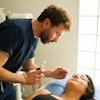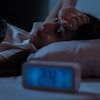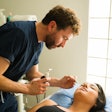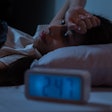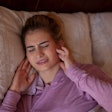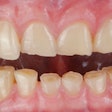
Medications play a critical role in treating a plethora of health conditions, but they aren't without their drawbacks. One significant oral health issue influenced by medication is bruxism -- a condition characterized by involuntary teeth grinding and clenching. This condition can result in enamel erosion, increased tooth sensitivity, and a higher risk of cavities. In some instances, it may even lead to fractures, which may require tooth extraction.
Dentists must be familiar with this medication side effect and able to counsel patients about it. Luckily, nightguards are a simple, in-office solution that most dentists can easily fabricate for patients as a preventive measure. Looking out for medications that may increase a patient's risk of bruxism is one easy way to boost practice revenue while improving patients' oral health.
 Dr. Lisa Chan.
Dr. Lisa Chan.
Many don't realize that common medications can trigger bruxism. Research indicates a link between bruxism and alterations in neurotransmitters like norepinephrine, dopamine, and serotonin.
Although stress and neurological conditions like Parkinson's disease are well-known triggers, several medications can also heighten a person's risk. These medications include the following:
1. ADHD medications: Stimulants such as Adderall (amphetamine and dextroamphetamine), Vyvanse (lisdexamfetamine), and Ritalin (methylphenidate) are prescribed for attention deficit hyperactivity disorder (ADHD) and influence neurotransmitter levels, potentially leading to bruxism. This is particularly important to know, considering that prescriptions for ADHD medications surged during the pandemic.
2. Antidepressants: Certain antidepressants are also linked to bruxism. Selective serotonin reuptake inhibitors (SSRIs) like fluoxetine (Prozac) primarily affect serotonin levels, while norepinephrine and dopamine reuptake antagonists (NDRAs) such as bupropion (Wellbutrin) increase the availability of norepinephrine and dopamine. Antipsychotics like risperidone (Risperdal), which target both dopamine and serotonin receptors, can also influence this condition.
3. Parkinson's medications: Medications for neurological conditions like Parkinson's may exacerbate bruxism due to their effect on dopamine levels. For example, levodopa (found in levodopa/carbidopa) acts as a dopamine precursor, enhancing dopaminergic activity.
By understanding the interplay between medications and oral health, dental care professionals can enhance their approach to holistic patient care. Figuring it out on your own isn't easy, though, which is why tools like the Digital Drug Handbook exist. It dissects what your patients are taking into dentistry-specific bullet points that match dental workflows.
Teresa Mendoza, PharmD, received her degree in biochemistry and a minor in Chicano/a studies from the University of California, Los Angeles (UCLA). She earned her Doctor of Pharmacy degree from the University of California, San Francisco School of Pharmacy. Mendoza has held many executive positions involving service to the community and higher education advocacy. She is a contributor to MedAssent DDS as a medical/pharmaceutical communications specialist, where she leads the blog, white paper, and continuing education content.
Dr. Lisa Chan has devoted her career to promoting equity in care in both dentistry and her community. She brings over 35 years of diverse experience in dentistry to her role. Chan received her Doctor of Dental Surgery degree from the University of Southern California Herman Ostrow School of Dentistry. Her background includes significant positions such as a hospital dentist at Kaiser Permanente, a private practice dentist in Los Angeles, and a consultant for the California State Dental Board. Chan co-founded MedAssent DDS with the mission of elevating patient safety through integrated care.
The comments and observations expressed herein do not necessarily reflect the opinions of DrBicuspid.com, nor should they be construed as an endorsement or admonishment of any particular idea, vendor, or organization.


